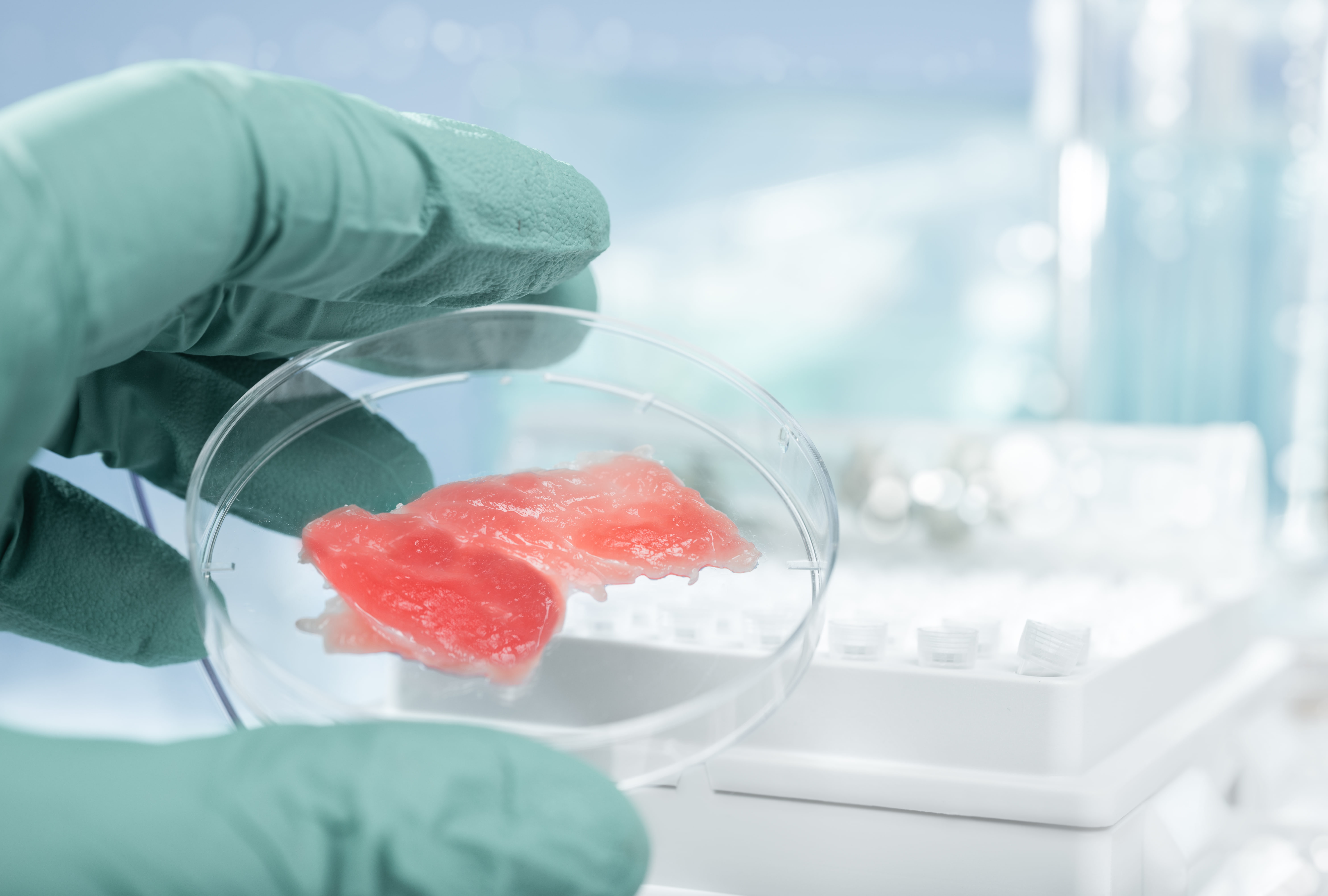Two years have passed since professor Mark Post announced the arrival of the first in vitro hamburger. Soon, we might be getting a taste of the first lab-grown chicken meat. A bioengineer at Tel Aviv University, Professor Amit Gefen, began a feasibility study funded by a non-profit group called Modern Agriculture Foundation.
The task is much more complex compared to the $300,000 beef burger cooked at Maastricht University, in the Netherlands. Unlike the five-year-long, Google funded project, Gefen aims to grow chicken meat from a single cell.
In Mark Post's case, the in vitro meat was produced by growing several samples of meat cells in a nutrient solution. Gefen plans to take a single sample of chicken cell and let them divide and multiply. In his previous attempts, Gefen used growth factors from tumor cells to stimulate the development of the chicken meat, but the meat produced was not edible.
Demand for meat is expected to double between 2000 and 2050, as the world population surpasses 9 billion. A study carried out by Oxford University and the University of Amsterdam predict that the "victimless meat" would decrease the production of greenhouse gases by 96 per cent, while consuming 82 to 96 per cent less water and almost completely eliminating the need of land for growing livestock.
Major investors such as Bill Gates, Twitter co-founders Evan Williams and Biz Stone, and Asia's wealthiest man Li Ka-shing believe in these technologies, hoping that these projects will be the solution to the highly-inefficient, costly and inhumane methods of raising livestock.
Curious to know how we could cook in vitro meat in the future? Order The In Vitro Meat Cookbook here.
Story via Reuters. Image via Shutterstock

Share your thoughts and join the technology debate!
Be the first to comment